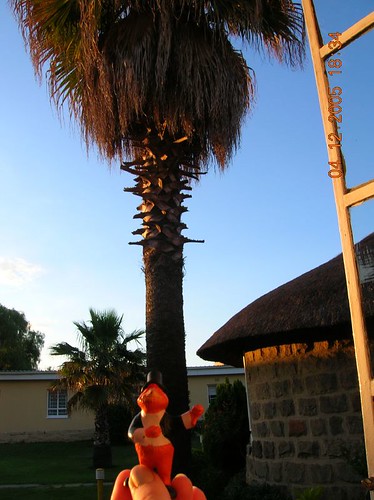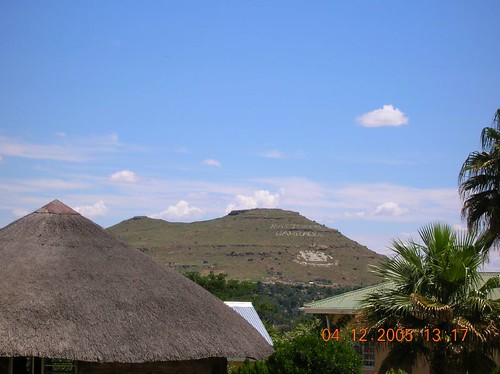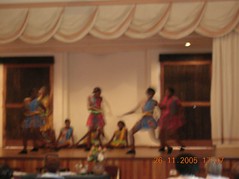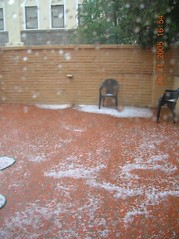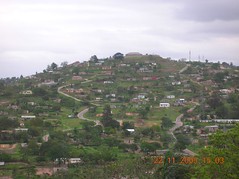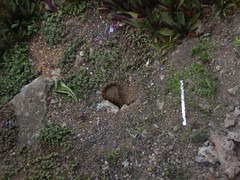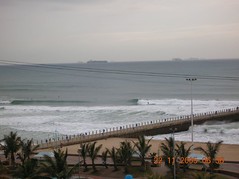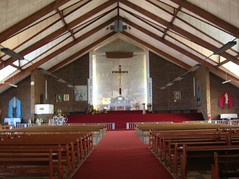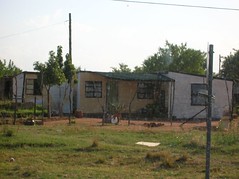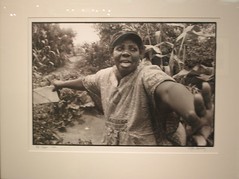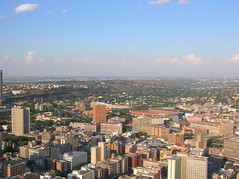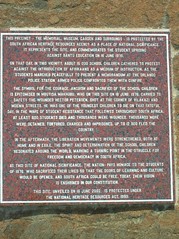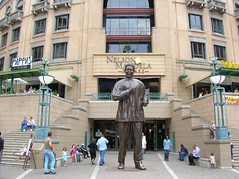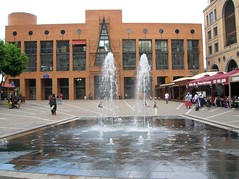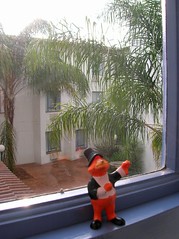Pour les nouveaux lecteurs, je dois clarifier que je ne vis pas en Afrique du Sud. Je travaille comme Auditeur Interne (on nous appelle la "Paper Police") pour une agence de developpement internationale. Dans le cadre de mon travail je suis appeler a voyager 100% du temps, des missions de 6 a 8 semaines bout a bout. Je suis en ce moment en train d'auditer notre programme en Afrique du Sud, mais je quitte le 16 decembre pour les fetes a Mtl. Je ne retourne pas en Afrique du Sud en Janvier.
For new readers, I must clarify that I do not live in South Africa. I am an Internal Auditor (some call us “the Paper Police”) for an international development agency. For my work, I have to travel 100% of the time, which involves missions lasting 6 to 8 weeks. I am presently auditing our South-African activities, but I will leave on December 16th to go spend the holidays in Montreal. I am not returning to South Africa in January.
Toutefois, si j'avais quelque conseil a donner aux voyageurs curieux de visiter l’Afrique du Sud, je dirai:
However, if I had any advice to give travelers interested in South Africa, I would say :
- Prevoyez de passer une journee complete a Soweto: entre la maison de Nelson Mandela, l'Eglise Regina Mundi, et le Hector Peterson Memorial, il y a assez a voir et a faire pour combler une journee commencant a 7h le matin.
- Plan for a whole day in Soweto: with Nelson Mandela’s house, Regina Mundi church, and the Hector Peterson Memorial, there is enough to see and do to fill a day starting a 7AM.
- Si vous restez a Johannesburg, Sandton reste l'endroit le plus securitaire. Le taux de criminalite est tres haut, et les femmes sont particulierement la cible de viols a Jo-Burg. Si on combine ce riqsque au taux de prevalence du VIH-SIDA (presque 30%), ca fait peur.
- If you stay in Jo-Burg, Sandton remains the safest area. The crime rate is very high, and women particularly are the target of rape in Jo-Burg. This, combined to the HIV-AIDS prevalence rate (almost 30%) is very scary.
- Ne marchez pas seul après le coucher du Soleil.
- Do not walk outside alone after sunset.
- Donnez-vous une journee pour visiter l'Apartheid Museum.
- Do plan a day to visit the Apartheid Museum.
- Prevoyez une journee pour l'Africa Museum. Ce musee est situe a Newtown, il ya en face un resto tres sympa ou on joue du Jazz Live le samedi soir. La soiree Jazz, c’est a faire absolument, c'est vraiment tres tres sympa. L'Africa Musem est gratuit et absolument immense. Arrivez tot pour ne pas etre frustres de partir. Il y a aussi juste a cote les theatres ou on joue des comedies musicales sud-africaines (noires). Je n'ai pas eu l'occasion d'y aller mais c'est tres bien parait-il.
- Plan a day to visit the Africa Museum. This museum is in Newtown, and right across the street is a fun restaurant where live Jazz is played on Saturday nights. The Jazz evening is a must, it’s a lot of fun. The Africa Museum is free and absolutely huge. Get there early to avoid being frustrated from leaving. Right next door, there are the Theaters where South-African musicals are presented. I didn’t have the chance of going, but I’m told it’s worth it.
- Il serait une bonne idee de passer votre permis international avant de partir. A Jo-Burg, les distances sont longues et les taxis coutent plus cher que de louer une voiture. Par contre, il ne faut pas oublier : en SA, on conduit du cote croche de la route (et non du cote droit) !
- It’s a good idea to have an international permit. In Jo-Burg, distances are long and taxis are more costly then car rentals. Don't forget that people here drive on the wrong side of the road (on not on the right one) !
- Si vous avez des appareils electriques, prevoyez un transfo ou un adapteur comme pour la France. Les prises sont a trois trous mais on peut facilement trouver un adapteur sur place.
- If you have electrical appliances, do plan to have a transformator or adaptor as you would for France. Plugs have 3 pins here, but one can easily find an adaptor for French pins.
- C'est une bonne idee d'apprendre un minimum de langue africaine - le Zulu, Xhosa, Shona et Sutu sont repandus. Ca nous permet de bien nous integrer au Sud-Af noirs.
- It’s a good idea to learn a minimum of African idiom – Zulu, Xhosa, Shona and Sutu are common. This allows us to integrate well with the local black south-africans.
Zulu (J-Burg):
Sawubona = bonjour/Good morning ;
Kunjanie = Ca va?/How are you ;
Njaiapila = ca va bien / I’m doing well ;
Guiabanga = Merci / Thank you.
Sotho (Lesotho):
Me = Madame / Madam
Mtate = Monsieur / Sir
Quialeboa = Merci / Thank you
Ahholo = beaucoup / a lot of.
Afrikaans (Afrikaner):
Danki = merci / Thank you
Plaisir = bienvenue / Welcome.
- En Afrique du Sud, on peut trouver a peu pres n'importe quoi. Pas la peine de s'encombrer de shampoings, etc.
- In SA, one can find about anything. No need to cumber oneself with shampoo etc.
Si vous avez le temps, prevoyez quelques jours au Lesotho (100$ d'avion de Jo-Burg et pas de visa requis pour les ressortissants du Commonwealth ou les Americains). Le paysage est a couper le souffle et les attractions sont plutot hors de l'ordinaire (traces de dinosaures et peintures rupestres entre autres).
If you have time, plan a few days in Lesotho (100USD for an airplane from Jo-Burg, and no visa needed for Commonwealth or American citizens). The landscap is breath taking, and the attractions are out of the ordinary (dinosaur footsteps and cave paintings, amongst others).
The Beaver
Thanks,
Kingston Girl,for giving me a link!
My guest map is wonderful ! And you'd all be wonderful to post, all of you lurk mode readers!
Thanks and may the winds of Fate blow your way !





 with their most recent addition being the HIPPO!!!
with their most recent addition being the HIPPO!!!



